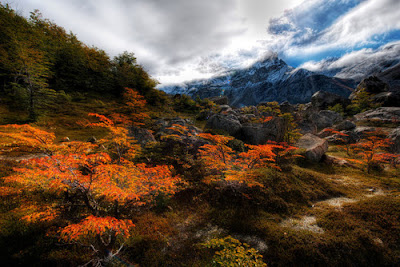Sometimes deep insights come in the most peculiar places. The other day, I was sitting in a hot tub at a friend’s house, and we were talking about our childhoods. The topic eventually got around to abuse I had suffered as a child and to how various Mormon doctrines of redemption had, over the years, affected how I had “processed” not only the abuse I myself experienced, but also the history of abuse in my family.
As I was describing these doctrines to my non-Mormon friend, I experienced one of those moments in which I suddenly perceived, with stunning clarity, how doctrines in which I had passionately believed for almost 30 years were not only not true, but were mind-enslaving, soul destroying cancers that had eaten away at my sense of self for most of my life.
Such, alas, is the power of magic, the force of myth, carefully constructed. It dispenses the elixir of sanity, bewitches the believer, holds out the promise of transformation and proffers hope ~ but, alas, all is vaporous.
Background
As I have written about from time to time on my blog, I experienced physical and emotional abuse when I was a child. Without going into details, suffice it to say that my mother – who was twice hospitalized in psychiatric wards, who suffered from depression and debilitating migraines and who was addicted throughout the first 10-12 years of my life to both prescription diet pills (speed) and sleeping pills (barbiturates) – could be a short-tempered woman who was physically powerful and prone to violence.
My father, for his part, was largely absent during those years. It’s not as though I grew up on the “wrong side of the tracks,” however. We were, by outward appearances, a respectable, middle-class religious (Catholic) family. But appearances were deceiving. My father was absent because his sales job often required him to be out of town and because he was a workaholic; and though he knew about some of the abuse, and probably suspected more, he was happy, I think, to just try to ignore it. He had his own issues with my mother, and I think he willfully shut his eyes to much of what was going on at home. He may have even been afraid of her.
As I got older, I tried to forget most of what had happened in my childhood. What I didn’t manage to forget, I simply took in stride. To me, it was my “normal.” To the extent I held things against my mother, I justified her behavior in my own mind due to the fact that she had herself been abused as a child: her father was very abusive, as was his father before him.
I well remember my grandmother, Nell, talking about my grandfather. Nell divorced him in the depths of the Depression and was turned away by her own mother as a result. Through sheer grit, she managed to make it through the Dirty Thirty’s with my mother and one of her brothers in tow, her older brothers being farmed out to other relatives. Grandma described to me how my grandfather had pistol-whipped her, threatened her with a gun (until the neighbor lady came over, took the gun and threw it down the outdoor toilet), and otherwise abused her.
Nell also described how mean her former father-in-law had been. “Herman,” she once told me, “was mean,” – her high-pitched nasal voice accentuating the word “mean” as she stared off into the distance, holding a lit Lucky Strike cigarette in her hand – “then,” turning back to look at me and pointing her hand toward me, cigarette dangling, “he turned nice … Then, he died.” Grandma flicked her cigarette into the ashtray as if to emphasize the finality of death, then turned away again, looking once more down the tunnel into the past.
 |
| Grandma |
I frankly never thought much about the abuse I had experienced as a boy (and the effect it had had upon me) until I joined the Church. It was then, upon being confronted with a deeply shameful past and family legacy in the face of what appeared to me to be picture-perfect Mormon families, that I first felt the need and sought ways to whitewash or otherwise excuse my mother’s actions (and my father’s inaction) towards me when I was a boy, as well as my family’s shameful history of abuse.
I think I also believed for a time (again, as a way to cover the shame that I felt when I joined the Church) that my mother’s abuse – along with my father’s emotional abandonment - was why I had “turned out” gay. I think I wanted – at least for a time - to believe this. It was perhaps convenient for me to be able to blame her in this way for a “condition” that I didn’t want.
To be continued ...
To be continued ...


















































